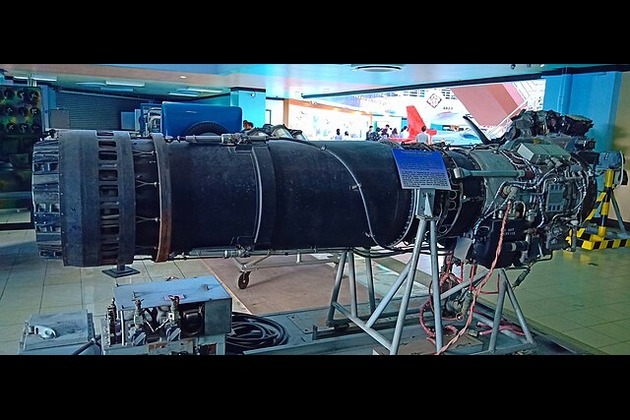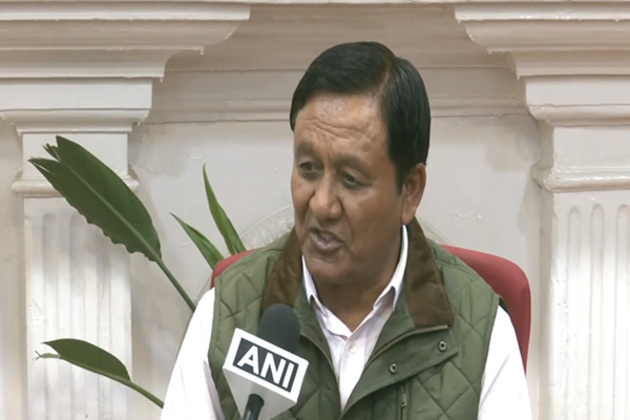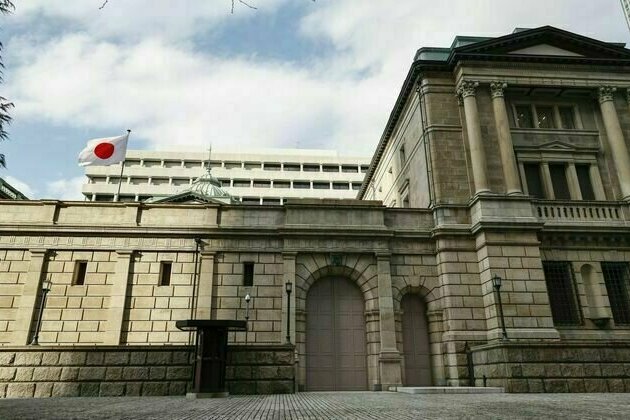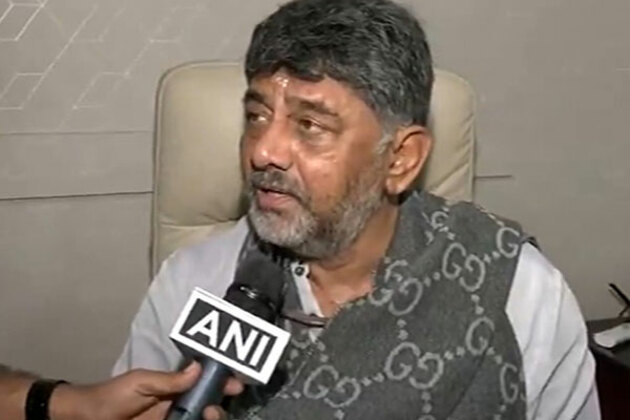China's high-speed rail tech boon for world, picturing new vision for connectivity
Xinhua
10 Jul 2025, 22:45 GMT+10
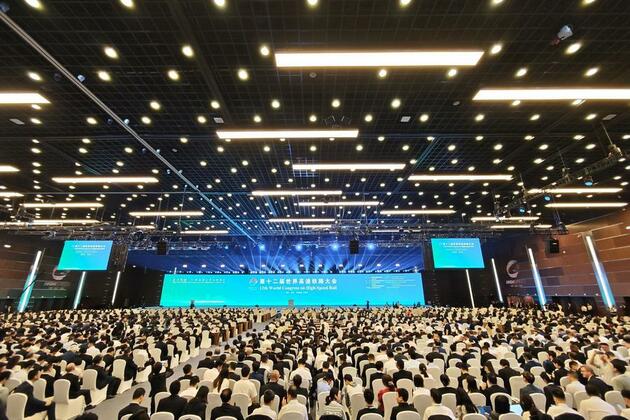
BEIJING, July 10 (Xinhua) -- China's fast-evolving high-speed rail technology is not only reshaping domestic mobility, but also playing an increasingly significant role in enhancing global connectivity and driving infrastructure development, experts said at the 12th World Congress on High-Speed Rail.
The event, held from Tuesday to Friday in Beijing and co-hosted by China State Railway Group and the International Union of Railways (UIC), drew more than 2,000 participants from over 60 countries, regions and international organizations.
"In less than two decades, China has created the largest and most advanced high-speed rail system in the world, reshaping mobility, the economy and regional development," said Alan Beroud, chairman of the UIC, during his keynote speech at the opening ceremony.
China's achievement is more remarkable given that at the beginning of this century, the country had no high-speed railways. Back then, passengers relied on slow and often overcrowded trains, making cross-country journeys time-consuming and exhausting.
Today, the country operates about 48,000 kilometers of high-speed rail, more than twice the length of all other countries' networks combined. The system links 97 percent of cities with populations of 500,000 or more.
Guided by an innovation-driven strategy, China has emerged as a global front-runner in the sector. The country has spearheaded the development of all 13 system-level international standards for high-speed rail set by the UIC. Its flagship models, such as the CR450 electrical multiple unit, the world's fastest high-speed train with a test speed of 450 kilometers per hour, have redefined new global benchmarks for speed and safety.
For many countries, especially those still developing their infrastructure, China's story is more than a feat of modernization -- it serves as a practical pathway to achieving broader development.
"Most countries experience the same starting point like China," said Ulan Kulov, deputy general manager of the China-Kyrgyzstan-Uzbekistan Railway Co. "We can go this way faster if we learn from China, because we don't have to reinvent it, and we can use existing technologies and go fast forward."
While leading in development at home, China is also exporting its expertise abroad, partnering with more than 40 countries and regions. From Asia to Europe and beyond, its high-speed rail projects are leaving a growing global footprint.
The Jakarta-Bandung High-Speed Railway in Indonesia, built entirely with Chinese technology and standards, slashed travel time between the two cities from more than three hours to just 46 minutes. In Europe, the China-backed Hungary-Serbia Railway has cut travel time between Budapest and Belgrade from eight hours to three, benefiting more than 11 million passengers since operation.
The China-Laos Railway stands as a key project promoting regional connectivity and trade. As of May, the railway had transported more than 52.7 million passengers, including over 510,000 cross-border travelers, and carried more than 59.4 million tonnes of cargo, with cross-border shipments exceeding 13.7 million tonnes.
Daochinda Siharath, managing director of Lao National Railway Authority, said the China-Laos Railway was the first railway built to modern technical standards that Laos had operated. "The railway has directly and indirectly supported the socioeconomic development in Laos, and also boosted the income of people living along the route," the official said.
Beyond advancing infrastructure in developing nations, China's high-speed rail is also creating new opportunities for traditional railway players.
When attending a parallel exhibition on modern railway technology, Hitachi NICO Transmission Co., Ltd., a Japanese company that entered the Chinese market in 1980, highlighted the importance of joint innovation.
"In the past 40-plus years, it was through our development in China that we seized unprecedented opportunities," said Matsui Shiro, president of the company. He noted that Japanese and Chinese companies are highly complementary in areas such as specialized components, co-development, and integrated solutions.
"The Belt and Road Initiative has opened new doors for China-Japan joint ventures in third-party markets," Matsui said. "We see great prospects for effective partnerships in many areas."
 Share
Share
 Tweet
Tweet
 Share
Share
 Flip
Flip
 Email
Email
Watch latest videos
Subscribe and Follow
Get a daily dose of Shanghai Sun news through our daily email, its complimentary and keeps you fully up to date with world and business news as well.
News RELEASES
Publish news of your business, community or sports group, personnel appointments, major event and more by submitting a news release to Shanghai Sun.
More InformationInternational
SectionRubio impersonator used AI to reach officials via Signal: cable
WASHINGTON, D.C.: An elaborate impersonation scheme involving artificial intelligence targeted senior U.S. and foreign officials in...
Warsaw responds to migration pressure with new border controls
SLUBICE, Poland: Poland reinstated border controls with Germany and Lithuania on July 7, following Germany's earlier reintroduction...
Deadly July 4 flash floods renew alarm over NWS staffing shortages
WASHINGTON, D.C.: After months of warnings from former federal officials and weather experts, the deadly flash floods that struck the...
Putin fires transport chief, later found dead in suspected suicide
MOSCOW, Russia: Just hours after his sudden dismissal by President Vladimir Putin, Russia's former transport minister, Roman Starovoit,...
Thousands gather in Himalayas as Dalai Lama celebrates 90th birthday
DHARAMSHALA, India: The Dalai Lama turned 90 on July 6, celebrated by thousands of followers in the Himalayan town of Dharamshala,...
Fans perform WWII-era Fascist salute at Marko Perković’s mega concert
ZAGREB, Croatia: A massive concert by popular Croatian singer Marko Perković, known by his stage name Thompson, has drawn widespread...
Asia Business
SectionBirkenstock steps up legal battle over fakes in India
NEW DELHI, India: Birkenstock is stepping up its efforts to protect its iconic sandals in India, as local legal representatives conducted...
Beijing hits back at EU with medical device import curbs
HONG KONG: China has fired back at the European Union in an escalating trade dispute by imposing new restrictions on medical device...
Trump admin allows GE to restart engine sales to China’s COMAC
WASHINGTON, D.C.: The U.S. government has granted GE Aerospace permission to resume jet engine shipments to China's COMAC, a person...
Himachal Pradesh Minister slams Centre for bias, announces relocation of flood-hit college
Shimla (Himachal Pradesh) [India], July 10 (ANI): Amid ongoing devastation caused by heavy rainfall and flash floods in Himachal Pradesh,...
Japan records 0.2 percent drop in producer prices in June
TOKYO, 10th July, 2025 (WAM) -- Producer prices in Japan declined by 0.2 percent in June, the Bank of Japan said on Thursday. The...
Have appealed to the Centre for Rs 11,122.76 crore funds for six irrigation projects in Karnataka: DK Shivakumar
Bengaluru (Karnataka) [India], July 9 (ANI): Karnataka's Deputy Chief Minister, D.K. Shivakumar, who oversees the irrigation portfolio,...









